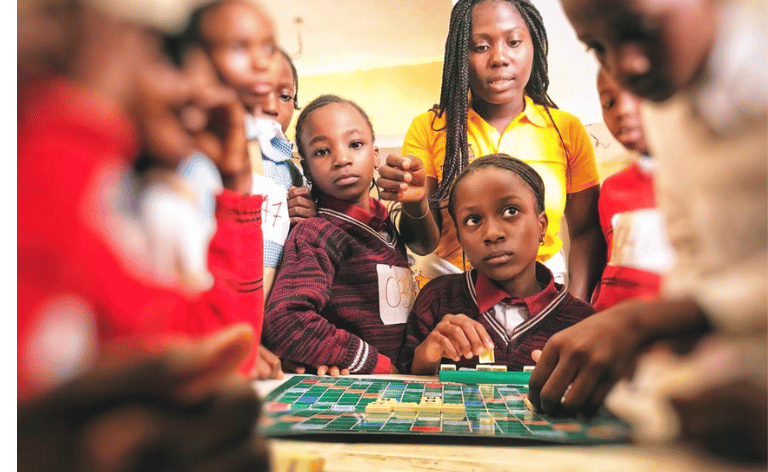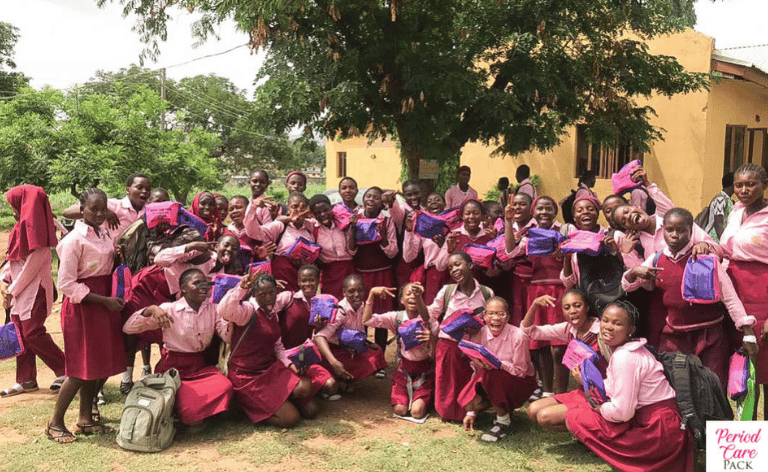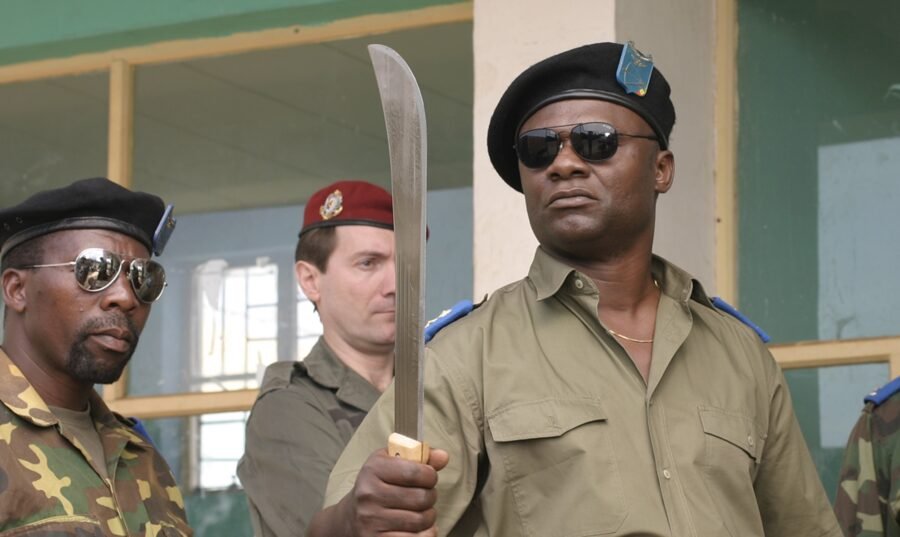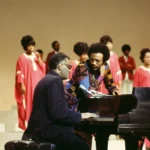Christine Ishanpepe Vihishima is bridging the Gap With The Thinking Cap Literacy Initiative. Find Out How

Literacy has reached an all-time low in Nigeria. There are schools in almost every section of Nigeria, but proper education remains a concern. Teachers are underqualified, and where they are, frustration drives them away due to a lack of sufficient infrastructure. As a result, we have a generation of elementary school graduates who can barely recite their multiplication table and can hardly spell or read. Christine Ishanpepe Vihishima recognised the situation and decided to take action by establishing the “Thinking Cap Literacy Initiative”. Christine was interviewed about her work. Have fun reading.
Hello Christine. Please tell us a bit about yourself
My name is Christine Msurshima Ishanpepe Vihishima. I am 23 years old, a Christian and very proud to be Nigerian. I am currently in my 3rd year of pursuing a Law degree at the American University of Nigeria, Yola. Asides from pursuing my degree, I am a portrait/wedding photographer, an entrepreneur (Ishanpepe’s Ventures & Miss Petite’s Wardrobe) and an education advocate running a non-governmental organization (NGO), (Thinking Cap Literacy Initiative) focused on rolling back illiteracy among Nigerian children and young people through various creative methods.
What prompted you to start the Thinking Cap Literary Initiative?
With my mom being an educator, I had the rare privilege of being homeschooled for the most part of high school till 12th grade. I also got the opportunity to work part-time at her school and this gave me a chance to interact with the children on a broader scale. During my course of working with them, I realized that quite a large number of them spoke impeccable English and could read but lacked the skills of accurate spelling. This bothered me because reading, spelling and speaking go hand in hand and incapacitation in one area affects the other areas. Without accurate spelling, our writing will be wrong. Take for instance a university graduate who speaks very good English but cannot put it into writing accurately. It is not strange to see blunders in job applications and other written documents.
When it comes to problems around me, I am often found asking myself, “How can I salvage the situation? or “What can be done to help?” This burden of illiteracy not just concerns spelling, but also reading, writing, and the lack of quality and equitable access to education which is a HUGE problem in Nigeria, all prompted me to start the Thinking Cap Literacy Initiative. Having benefited from quality education, I am without a doubt a firm believer in the fact that EVERYONE DESERVES TO BE EDUCATED.
What exactly does TCLI do?
The main aim of TCLI is to roll back illiteracy and promote it among children and young people through creative channels. We create literary awareness, organize programs that promote and enhance literacy, fund and stock libraries, encourage the development of core moral values and language and cultural heritage, provide educational and financial support in the form of scholarships and bursaries to deserving young people, and finally, we collaborate with other partners who share similar goals. Some of the programs we organize include spelling bees, writing competitions, reading clinics and literacy workshops. TCLI also provides volunteer opportunities for young people who want to give back to their community.
How has the journey so far been?
The journey has been an amazing one so far! Quite discouraging and challenging sometimes too. However, over the years I have sharpened my vision, skills, and my knowledge, and also broadened my network. During my journey so far as well, I have been opportune to share my story with others in order that they may be inspired to make their lives count not just for now, but for eternity. Of course, there are days when I am overwhelmed by the enormity of the work but my passion and vision are a great driving force that keeps me going.

What have the challenges to your work been?
I would say that one of the main challenges amidst other challenges is that of support. Most, if not all of our projects need financing and over the years getting such funds has proved quite challenging. I must say here that Nigerian society is yet to prioritize the matter of education and literacy and so even companies and well-to-do citizens are reluctant to throw in their support in cash or kind for a program that is geared towards education. This has proved to be a very huge challenge to my work and I am often constrained to use personal funds and funds from friends and family to fund projects and programs.
Another challenge to my work is the enormity of the burden. The work is tremendous! The matter of education and literacy is not a small issue that I have decided to devote time and effort to tackle through my work. It will take time, consistency and funds to truly make a nationwide impact.
Why did you choose to do the work you do at TLCI and how much of a problem do you think it really is?
As of the year 2015, according to World Data Atlas, Nigeria’s adult literacy rate was at the level of 59.6%. In that same year, the youth female illiteracy rate in Nigeria was 62.1 per cent. In the 2018 budget, only 7% of the 8.6 trillion was allocated to education which is 3 times lower than the 26% of the national budget recommended by the United Nations. UNICEF additionally reports that Nigeria has about 10.5 million out-of-school children, the world’s highest. These statistics are a clear indication that the education of our children in this country is not a priority for our government.
This is why I chose to establish TCLI, to help alleviate some of the rising problems in the educational sector of Nigeria. The low rate of education and literacy in Nigeria is a big problem because it is an issue that has ripple effects and consequences. The low rate of education in Nigeria has led to alarming numbers of children on our streets, begging, stealing and doing the unthinkable to survive, causing crime rates to remain on the rise. I have learned over the years that education is powerful. Education opens up the mind of the recipient to a whole lot of possibilities. It empowers him or her to think of better ways to enhance life and productivity and solve problems.
It is also the educated that can better hold their government accountable and also participate in government as well. I find it strange that sometime last year, a certain governor in a state in Nigeria, found it wise to empower secondary school girls with goats as a way to make them “self-reliant.” I was extremely appalled to see that such a thing even made the news! In my opinion, this act was a direct mockery of the education the girls are receiving. It is sad to see that we as a country have decided to settle for less than we deserve. Education and literacy need to be a priority in Nigeria and that is the task TCLI is making a conscious effort to tackle in our own little way.
How do you think the government and private individuals can solve this problem?
I believe that the government and private individuals can solve the problem of illiteracy and lack of equitable access to education by making education/literacy a PRIORITY for national involvement. It is because this matter is not a priority that it has not been properly addressed or invested in. Government should make education easily accessible, quality and equitable. Schools should be well-equipped, well-funded and in every community. Private individuals can sponsor young boys and girls through school, help in building schools in their communities, and of course, sponsor the causes of organizations such as TCLI!

What is your vision for TCLI? What goals do you have and what programs are we looking forward to asides from the spelling bees?
My vision for TCLI is to have a presence in all 36 states of Nigeria, including the FCT, actively achieving our goals and objectives. I desire to establish at least one community library and literacy hub in every state. I also desire to develop the spelling bees organized by TCLI at regional and national levels. Other programs to look forward to including writing competitions and literacy workshops at various periods during the year.
What advice would you give to young Nigerians looking for a means to change the country?
Do what you can, wherever you can, affecting as many people as you can. If we all do our part, we can rebuild Nigeria to become the land of our dreams. If you do not like something then change it! It is because very few people have taken up the burden of making Nigeria a better place that progress is slow! If a good number of us share the burden of making a change, the process of transformation will be sped up greatly. To be honest, the government will not be the one to transform Nigeria. This is our responsibility. “Arise, oh compatriots, Nigeria’s call obey” And finally, the time to truly make a difference is NOW that you are young.
Education is a serious issue in this country and I fear that if we don’t arrest it, we will have a big problem in the future. Uneducated people are potential dangers to our future society and are as equally dangerous as IDPs. We need more people with a vision like Christine, to build a Nigeria of educated people.
If you need to contact Christine and make inquiries about or contribute to TLCI, you can follow the following links
Email: christine.vihishima@aun.edu.ng
Phone: 07037351326
To see more of what we do at TCLI please follow us:
On Instagram: @tclinitiativeng
On Twitter: @tclinitiativeng
On Facebook: Thinking Cap Literacy Initiative
For any enquiries, you can email at tclinitiative@gmail.com
Thank you for reading you can check previous stories on heroes who don’t wear capes here.








